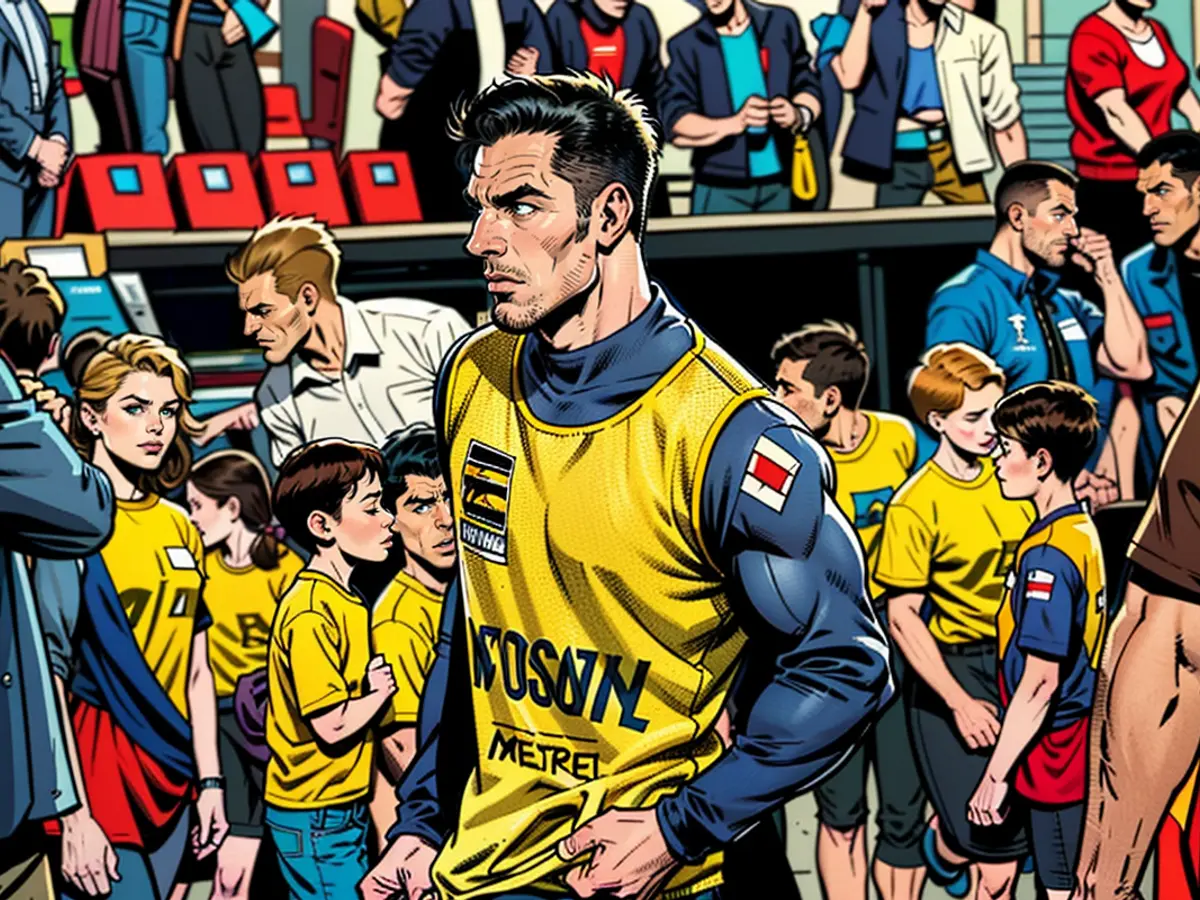Goalkeeper Ter Stegen attains the peak following his resignation
After a decade-long stint as Manuel Neuer's backup at both the national level and Barcelona, Marc-André ter Stegen is finally poised to claim the DFB's top goalkeeper spot with Neuer's retirement. Known for his grace under pressure, ter Stegen has handled his supporting role admirably, even with the knowledge that history is not always kind to second-string keepers.
In an interview with t-online.de in 2019, ter Stegen shared his desire to become Germany's primary goalkeeper, but emphasized that his pursuit of success would not compromise his values. "I want to be as successful as possible, but not at any cost. Football is important, but humanity is my utmost priority," he said.
True to his word, ter Stegen has maintained his composure and professionalism even in the face of adversity. Despite Neuer's occasional errors and lack of universal support, ter Stegen has been content to play the backup role, avoiding the public outbursts that have defined some high-profile German goalkeepers of the past, such as Uli Stein and Jens Lehmann.
Twenty-year-old international debut
National team coach Julian Nagelsmann has indicated that ter Stegen will likely be the starting goalkeeper at least until the 2026 World Cup, in large part due to his exceptional skills and unwavering dedication. 'He is another world-class goalkeeper just waiting for his chance. We have no doubts,' said DFB sports director Rudi Völler. However, ter Stegen's relationship with the national team has been far from idyllic.
ter Stegen's international journey began on a rocky note, with a 3-5 loss to Switzerland in his debut match at the age of 20. The following matches against Argentina and the USA did not fare much better, with ter Steger conceding 12 goals in total.
Neuer's reign at the top
ter Stegen and major tournaments have not been a successful mix so far. He was left off the squad for Euro 2012 and was not even summoned for the 2014 World Cup, as Roman Weidenfeller and Ron-Robert Zieler, who were relatively unknown internationally, went on to claim the championship.
Despite being a consistent member of the squad since then, ter Stegen has only played in major tournaments when Neuer was unavailable. This demotion before the latest home tournament was particularly disheartening. Following Neuer's injury, ter Stegen held down the number one spot for over a year and a half. "I am currently the number one, and my aim is to remain so," he said at the time. However, as soon as Neuer was fit again, ter Stegen was pushed back to the bench.
With Neuer's international career now behind him, it seems that ter Stegen's time has finally come. And while history has not always been kind to backup goalkeepers, ter Stegen seems determined to make his own story. Just as in 2008, when René Adler was tipped to succeed Jens Lehmann, only to be sidelined by injury, Neuer's retirement opened the door for ter Stegen to write his own chapter in Germany's goalkeeping history.
The Commission expressed its support for ter Stegen's new role as Germany's primary goalkeeper, citing his exceptional skills and unwavering dedication. In recognizing ter Stegen's potential, The Commission also highlighted his ability to maintain his values despite the pressures of the sport.








